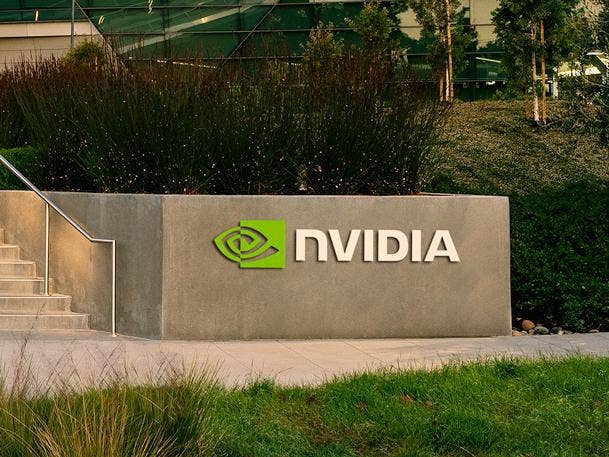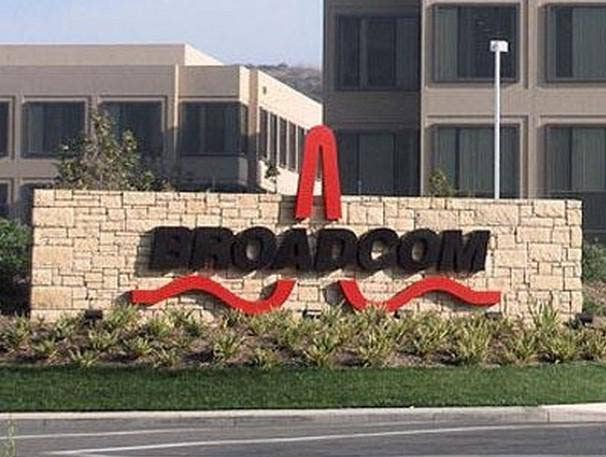Broadcom-VMware Deal Under Pressure In US, EU: Five Things To Know
The $61 billion mash-up now faces the same regulatory crucible that shredded the hopes of NVIDIA’s $40 billion deal with Arm.

Broadcom set a deadline to complete the acquisition of VMware by the end of this fiscal year.
When the deal was announced in May, that timeline gave CEO Hock Tan and his team 17-months to convince VMware shareholders to approve it and satisfy regulators around the world. Now with that window narrowing to 10 months, Tan has won the backing of VMware voters, but the European Commission this week announced an in-depth investigation of the takeover.
The agency’s chief enforcer, Margrethe Vestager, stated she is concerned chipmaker Broadcom may turn off its rivals’ access to VMware’s virtualization software once the deal closes. The European Commission has previously investigated Broadcom’s sales tactics in Europe and in 2021 branded them “illegal.” To avoid prosecution in that case, Broadcom submitted to a seven-year settlement which allows the European Commission to inspect its books to ensure it is not breaking the law.
Meanwhile, the U.S. has been investigating Broadcom’s plan to buy VMware since July with its own in-depth probe called a “second request” investigation. The Federal Trade Commission still has not issued a finding as to whether it will allow the merger, block it, or attach conditions to the deal.
In a statement, Broadcom has said that it anticipated the takeover could take months to finish, owing to the size of both companies as well as the billions involved in the deal. Broadcom is confident it can convince regulators of the deal’s merits.
“We look forward to continuing our constructive work with the European Commission as part of their thorough review process. We are making progress with our various regulatory filings around the world, having received legal merger clearance in Brazil, South Africa, and Canada, and foreign investment control clearance in Germany, France, Austria, and Italy,” Broadcom said in a statement.
“We continue to expect the transaction will close in Broadcom’s fiscal year 2023. The combination of Broadcom and VMware is about enabling enterprises to accelerate innovation and expand choice by addressing their most complex technology challenges in this multi-cloud era, and we are confident that regulators will see this when they conclude their review.”
Here are five things to know about the deal’s fate as 2022 slowly comes to a close:

Not Their First Rodeo
Broadcom has frequently appeared before both U.S. and European regulators in recent years, either because of an acquisition it had planned or due to its sales practices.
The U.S. Justice Department killed Broadcom’s potential takeover of Qualcomm in 2018 on national security grounds arguing that the company was not US based. Since then, Broadcom has relocated its corporate headquarters to San Jose, Calif.
In 2021, Broadcom was hit with accusations of illegal sales practices in the EU and in the US. In both instances regulators said Broadcom was forcing suppliers to buy a certain percentage of their supply from Broadcom in order to qualify for discounts.
The U.S. and the European Commission both found problems with the practice, and Broadcom has been operating under a settlement agreement that allows regulators to inspect its books to ensure compliance with authorities.

Federal Trade Commission Taking Close Look At The Deal
The FTC stated in a September 2021 memo that it would widen “second request” merger investigations for larger deals, with the director of the Bureau of Competition, Holly Vedova, writing that she intended to bring “ heightened scrutiny to a broader range of relevant market realities,” calling it “core to the agency’s mission.”
Broadcom and VMware were notified that the FTC would undertake a “second request” look at the deal in July, a review process that halts a transaction until the review is complete, according to Broadcom’s Securities and Exchange Commission filings.
“The parties may not complete the transactions until they substantially comply with the second request and observe a second 30-calendar-day waiting period, unless the waiting period is terminated earlier, or the parties commit not to close for some additional period of time,” Broadcom wrote in an SEC filing it posted last week.
Following a second review, the FTC can either allow the deal to proceed, impose conditions on the companies, or attempt to block the deal entirely by suing in federal court.
The FTC has not responded to CRN’s request for comment on the status of its investigation.

Same Regulatory Agencies Killed NVIDIA-Arm deal
In February when NVIDIA announced that its $40 billion proposed takeover of British chipmaker Arm was dead, it cited regulatory pressures in the US and Europe as the cause of the deal’s collapse.
While both NVIDIA and Arm are both chip makers, the European Commission said it was most concerned that should a deal go through NVIDIA could throttle its competitors access to Arm’s technology.
“Our analysis shows that the acquisition of Arm by NVIDIA could lead to restricted or degraded access to Arm‘s IP, with distortive effects in many markets where semiconductors are used,” Vestager wrote in October 2021. “Our investigation aims to ensure that companies active in Europe continue having effective access to the technology that is necessary to produce state-of-the-art semiconductor products at competitive prices.”
In December 2021, the U.S. Federal Trade Commission sued in federal court to block NVIDIA saying it would threaten competition by consolidating technologies around driverless vehicles, Data Processing Units and SmartNICs used in advanced servers, as well as Arm’s cloud computing technology.
Then, Vestager said the European Commission wanted to see more documents, including the written down minutes of a board meeting, discussing the takeover.
By early February, NVIDIA released a statement saying the deal was dead owing to “significant regulatory” pressure.

Broadcom’s Intent At Heart Of EC Probe
Whether Broadcom plans to increase prices, slow innovation, or cut off access to the platform all together, regulators, partners and analysts have all expressed concern around Broadcom’s intentions with VMware, should the takeover proceed.
For months, partners have talked with CRN about their fear that Broadcom could raise prices, or cut off support for smaller customers. But Vestager raised another fear, which is that Broadcom could turn off access to VMware for its rivals.
“Our initial investigation has shown that it is essential for hardware components in servers to interoperate with VMware’s software,” said Margrethe Vestager, European Commission executive vice president in charge of competition policy, in a statement. “We are concerned that after the merger, Broadcom could prevent its hardware rivals to interoperate with VMware’s server virtualization software. This would lead to higher prices, lower quality and less innovation for customers and consumers.”
Vestager said her concern is around the behavior of Broadcom after the deal, and whether it will continue to allow its rivals to use VMware. The virtualization product is bedrock technology to many networks around the world. Some of the company’s largest customers have expressed concern to analysts that Broadcom may dramatically increase prices.

Deal On Hold
Regulators have not indicated they will make a decision in the near future. The European Commission set a Nov. 5, 2023 deadline to complete its investigation.
Broadcom has said it hopes to have the deal close a few days before that, by Oct. 31, 2023.
The Federal Trade Commission has not responded to requests for comment about its investigation, which has now stretched five months.
Broadcom must satisfy regulators that its behavior post transaction will not harm competition before the deal is allowed to proceed.